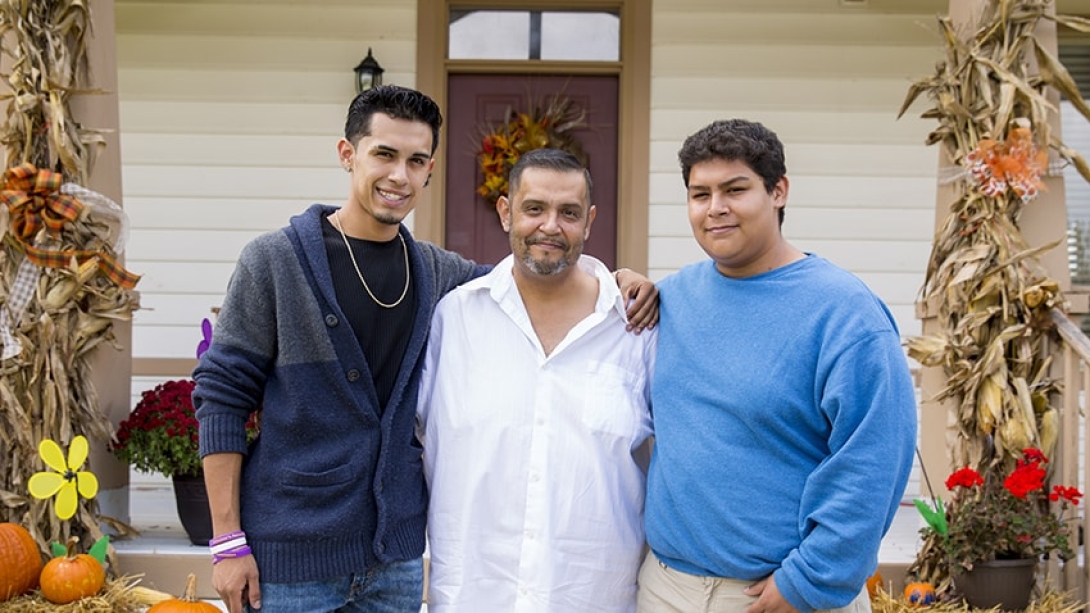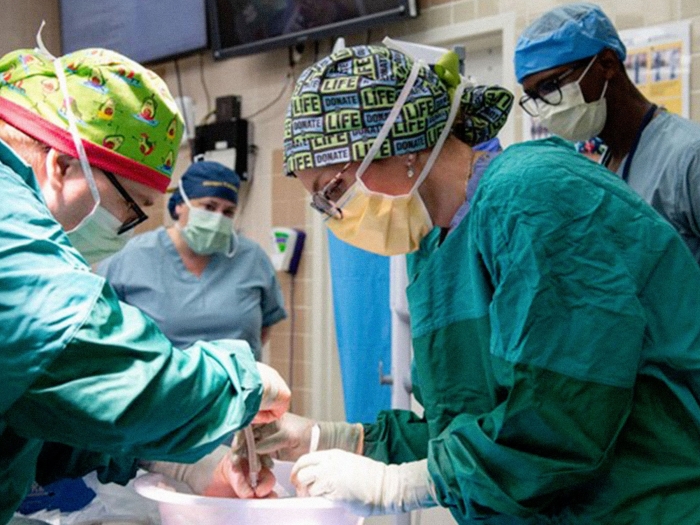Organ donors have a unique ability to help. Meet some Michigan Medicine transplant patients who are thriving thanks to the generosity of others.
7:00 AM
Author |


Millions of people have registered to give their organs to others in the event of their own death. The donor count includes more than 4 million in Michigan alone. Registration is simple and free.
MORE FROM MICHIGAN: Sign up for our weekly newsletter
The end result, however, may not be what comes to a donor's mind when signing up.
But each of the hundreds of transplant surgeries performed every year at Michigan Medicine has such a pairing — the donor and the person who received their gift.
Although every patient is different, most share a common refrain in recovery: None would be alive without the selflessness of others.
Here are a few of their stories:
Ann Schofield, liver transplant

A sudden bout of fatigue coupled with off-color urine and a strange skin odor frightened an otherwise healthy Ann Schofield. The life-threatening diagnosis: acute liver failure.
With little time to spare, a new liver was secured for the 50-year-old, who at first resisted the notion of such an exchange.
After a successful transplant and recovery, however, Schofield remains humbled by not only a new lease on life, but also her unknown donor's grace. "My miracle was the worst day for their family," she says. "I will always keep that in my heart and mind."
Read more: A 'Miracle' Transplant After Acute Liver Failure
Owen Pointer, heart transplant

Owen Pointer has a well-deserved nickname: "Mr. 1 Percent," as he beat the odds of a rare and complex heart condition. Key to the infant's survival was a heart transplant at 11 months old — a procedure that will probably need to be repeated in his adolescence.
Still, as Owen has marked five birthdays since the surgery, his family cherishes the lifesaving gift that has allowed the youngster to enjoy life with his twin, Keegan, and two older brothers.
"We're about to celebrate five years," says Owen's mother, Erin McRae. "We weren't even expecting five days."
Read more: 'Mr. 1 Percent' Celebrates His Fifth Birthday
Stan Larkin, heart transplant

One and a half years — 555 days, to be exact. That's how long Stan Larkin, a patient with hereditary heart disease, went without a heart as he awaited a transplant.
Keeping him alive during the interim was a Total Artificial Heart, implanted equipment that replaces both ventricles and four heart valves — and connects to a backpack-sized machine via tubes to pump blood and allow greater mobility.
But such devices are temporary. At age 25, the father of three finally got a suitable donor match (and a successful transplant surgery) in May.
Read more: Living for Years Without a Heart Is Now Possible
Miguel Tomas Lucio, liver transplant

As a singer who once recorded under a major label and earned a Latin Grammy nomination, Miguel Tomas Lucio has always had a strong voice.
After a 2013 diagnosis of hepatocellular carcinoma — a liver cancer that would require a transplant for Lucio to survive — the artist has since lent his pipes to urge more people, Hispanics in particular, to register as organ donors.
The reason: "Not everyone survives the wait," says Lucio, a father of three who waited about a year to receive his new liver. "I know how lucky I am."
Read more: Singing the Praises of Organ Donation: A Vocalist's Story
Scot Cannel, heart transplant

After learning he had end-stage heart failure several years ago, Scot Cannel knew it was only a matter of time before he would require a transplant.
The high school band director nonetheless had mixed emotions once a suitable donor was found. He grieved for that person's death, but he knew the loss would shift his own life's tune.
Says Cannel: "I try to stay healthy now, not only for myself, but for the memory of my donor; that's my responsibility." He also encourages everyone to learn more about organ transplantation and, if it's right for them, to register.
Read more: Scot's Story: 250 Students, 3 Daughters and 1 New Heart
Patrick Salem, heart transplant

On the surface, Patrick Salem seemed like the portrait of wellness: He ate a balanced diet and exercised often.
But a discovery of congestive heart failure in 2004, when he was just 29, led doctors to give Salem a left ventricular assist device until a donor heart could be found. A transplant followed several months later.
Now healthy, married and working as a motivational speaker, Salem uses his personal setback (and functional new organ) as a source of strength. "My diagnosis gave me the courage to live the life I had always wanted to live," he says.
Read more: Congestive Heart Failure — and a Transplant — 'a Gift and a Wake-Up Call'

Explore a variety of health care news & stories by visiting the Health Lab home page for more articles.

Department of Communication at Michigan Medicine
Want top health & research news weekly? Sign up for Health Lab’s newsletters today!





